Questions with Answers, Solution | Life Mathematics | Chapter 4 | 8th Maths - Example Problems on Profit, Loss, Discount, Overhead Expenses and GST | 8th Maths : Chapter 4 : Life Mathematics
Chapter: 8th Maths : Chapter 4 : Life Mathematics
Example Problems on Profit, Loss, Discount, Overhead Expenses and GST
Example
Problems on
Profit,
Loss, Discount, Overhead Expenses and GST
Example 4.6
Ranjith bought
a washing machine for ₹16150 and paid ₹1350 for its transportation.
Then, he
sold it for ₹19250. Find his gain or loss percentage.
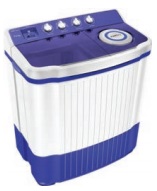
Solution:
Total C.P
of the washing machine
= C.P + Overhead Expenses
= 16150 + 1350 = ₹17500
S.P = ₹19250
Here, S.P
> C.P. Hence, there is a gain.

Gain % = (Gain/C.P ×100) % = { [19250 −17500]/17500 × 100 }% = ( [1750/17500] × 100 ) % =10%
Example 4.7
If the selling
price of an LED TV is equal to 5/4 of its cost price, then find the gain / profit
percentage.
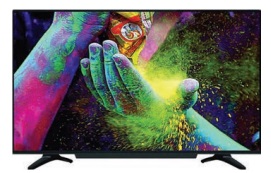
Solution 1:
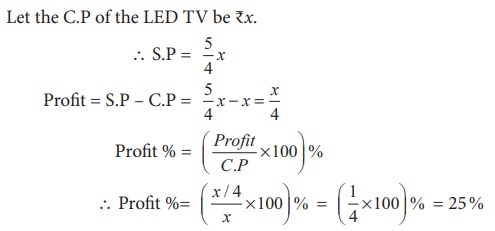
Solution 2:
Let the C.P
of the LED TV be ₹x.
∴ S.P
= 5/4 = x
Profit =
S.P – C.P = 5/4 x − x = x/4
Profit %
= (Profit/C.P ×100) %
∴
Profit % = ( x / 4 ×100) % = (1/4 ×100)
% = 25%
Example 4.8
The cost
price of 16 boxes of strawberries is equal to the selling price of 20 boxes of strawberries.
Find the gain or loss percentage.
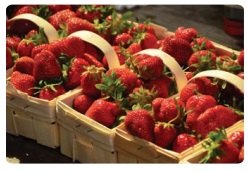
Solution:
Let the C.P
of one strawberry box be ₹ x .
C.P of 20
strawberry boxes = 20 x and
S.P of 20 strawberry boxes = C.P of 16 strawberry boxes = 16 x (given)
Here, S.P < C.P, hence there is a loss.
Loss = C.P
–S.P = 20 x - 16 x =4 x
Loss % =
( [Loss/ C . P] ×100 ) %
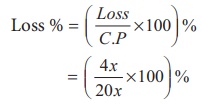
= ([4x/20x] ×100) %
∴
Loss % = 20 %
If the cost price of x
articles = selling price of y articles,
then profit % =  = ( [x-y/y] ×100) % . If the answer
is negative, then it is treated as loss. Check and verify this
= ( [x-y/y] ×100) % . If the answer
is negative, then it is treated as loss. Check and verify this for Example
4.8.
Example 4.9
By selling
a bicycle for ₹4275, a shopkeeper loses 5%. For how much should he sell it to have
a profit of 5%?
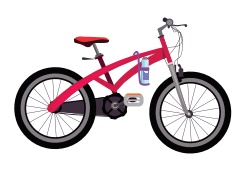
Solution:
S.P of the
bicycle = ₹4275
Loss = 5%
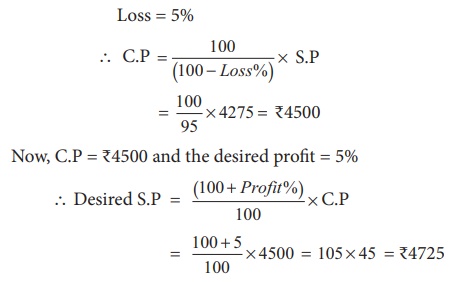
To have a
profit of 5%, he should sell the bicycle for ₹4725.
Example 4.10
The price
of a rain coat was slashed from ₹1060 to ₹901 by a shopkeeper in the rainy season
to boost the sales. Find the rate of discount given by him.

Solution:
Discount
= Marked Price –Selling Price
= 1060 – 901
= ₹159
∴
Discount %  = ( [159/1060] × 100) %
= ( [159/1060] × 100) %
= 15%
Think
A shopkeeper marks the price of a marker board 15% above the cost
price and then allows a discount of 15% on the marked price. Does he gain or lose
in the transaction?
Solution:
Let cost price of marker board be 100
CP = 100 Marks it 15% above CP
∴ Marked price = MP = ( [15/100]
× CP ) + CP
= ( [15/100] × 100 ) + 100 = 15 + 100 = 115
Discount % = 15%

Discounted price = MP (1 – (d%/100)) = 115 (1 – (15/100))
= 115 × (85/100) = 97.75
∴ He sells it 97.75 which is less than his cost price. Therefore
he loses
Loss = 97.75 − 100 = −2.25
Example 4.11
Find the
single discount in percentage which is equivalent to two successive discounts of
25% and 20% given on an article.
Solution:
Let the marked
price of an article be ₹100.
First discount
of 25% = 100 × (25/100) = ₹25
Price after
first discount = 100 - 25 = ₹75
Second discount
of 20% = 75 × (20/100) = ₹15
Price after
second discount = 75 - 15 = ₹60
Net selling
price = ₹60
Single discount
in percentage equivalent to two given successive discounts = (100–60)% = 40%.
Note
• If there are 2 successive discounts of a % and b % respectively,
then

• Single discount in % equivalent to 3 successive discounts of a
%, b % and c % respectively =

(Use this formula for the Example 4.11 and check the answer).
Example 4.12
A water heater
is sold by a trader for ₹10502 including GST at 18%. Find the marked price of the
water heater and GST.
Solution 1:
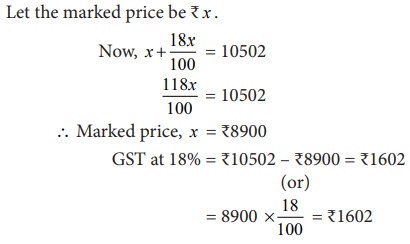
Solution 2:
Let the marked
price be ₹ x .
Now, x + (18x/100) = 10502
118x / 100 = 10502
Marked price, x = ₹8900
GST at 18%
= ₹10502 – ₹8900 = ₹1602
(or)
= 8900 × (18/100) = ₹1602
Example 4.13
A family
went to a hotel and spent ₹350 for food and paid extra 5% as GST. Calculate the
CGST and SGST.
Solution:
Cost of food
= ₹350
Extra 5%
paid as GST is equally shared by the Central and the State Governments at 2.5% each.
CGST = SGST
= 350 ×
(2.5/100) = ₹8.75
Related Topics